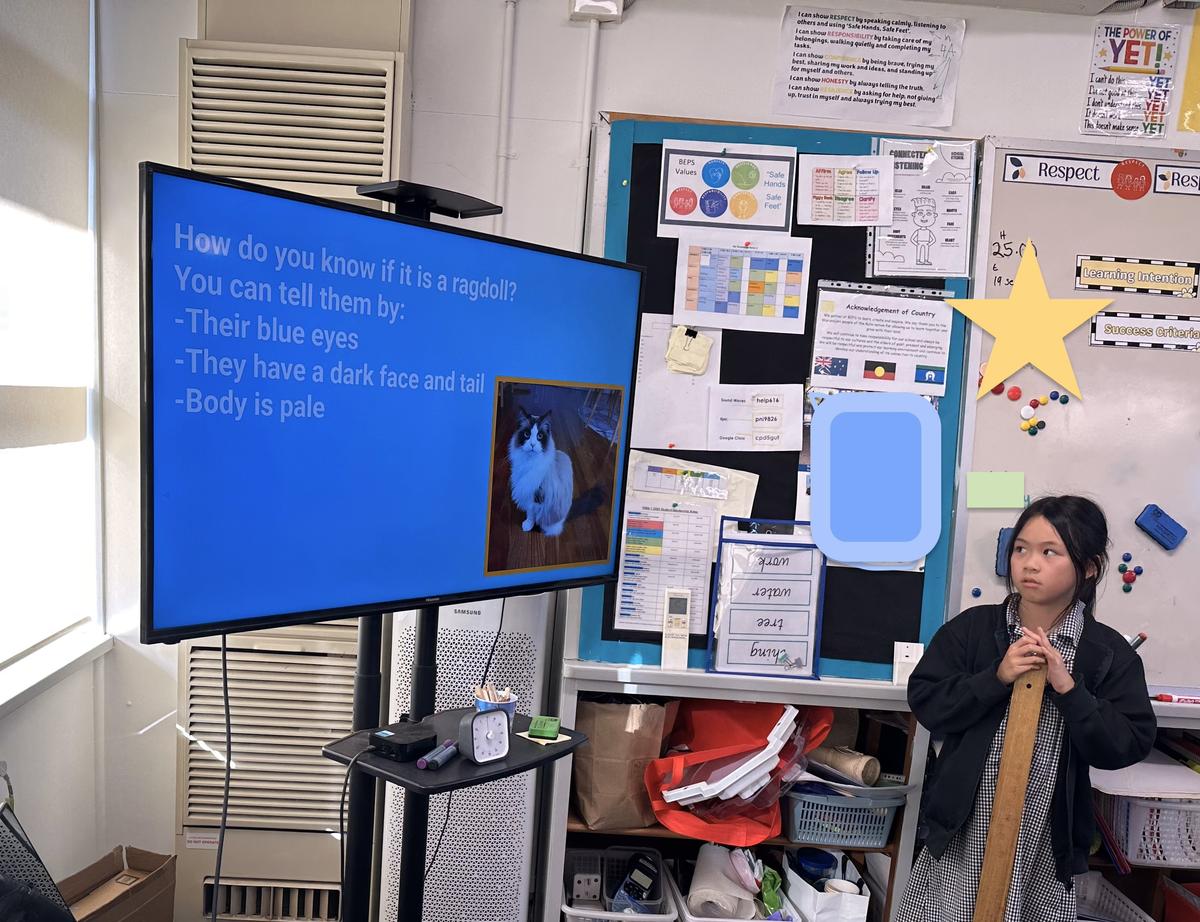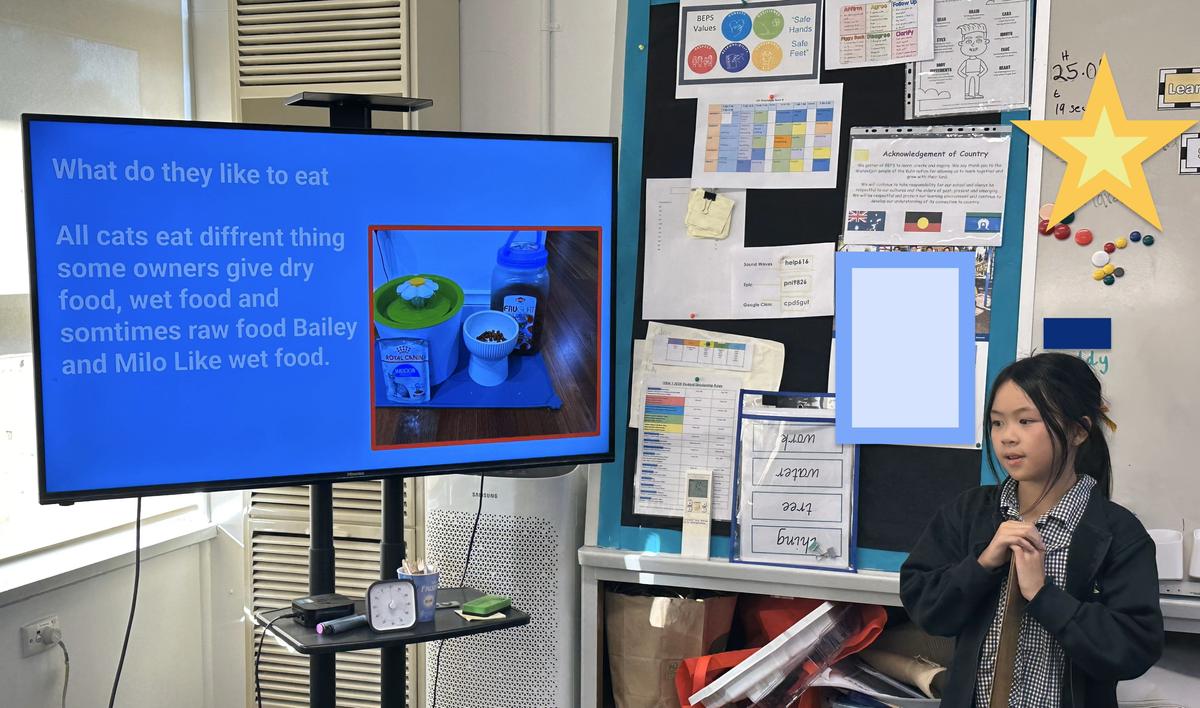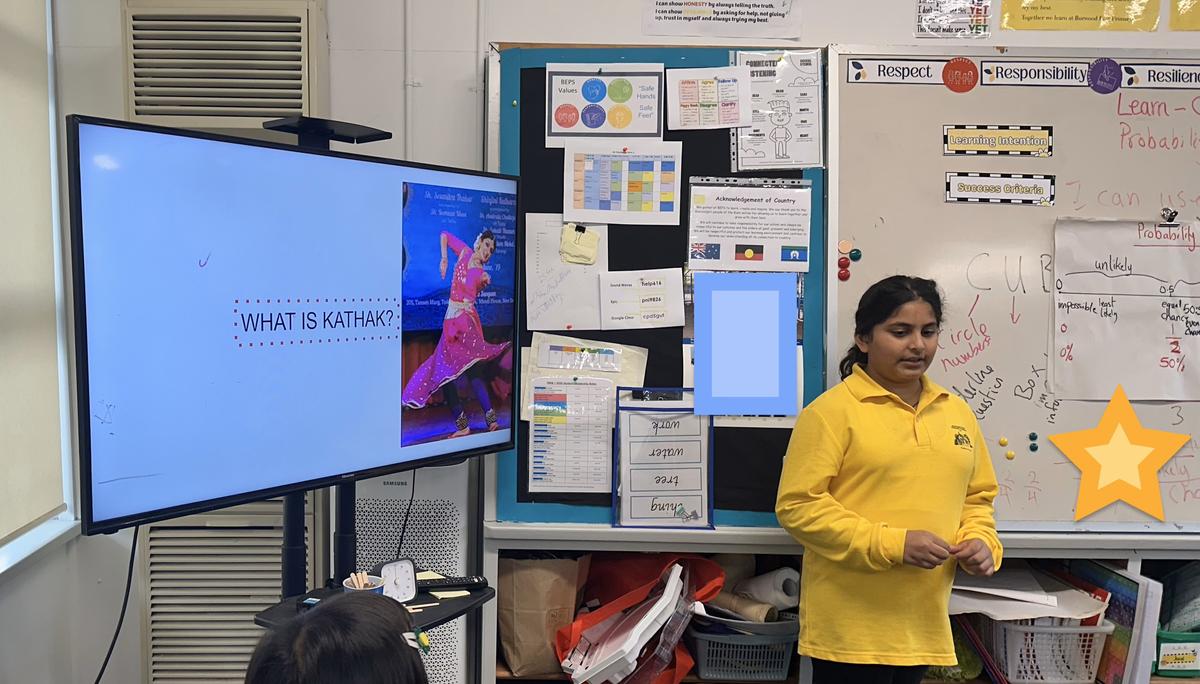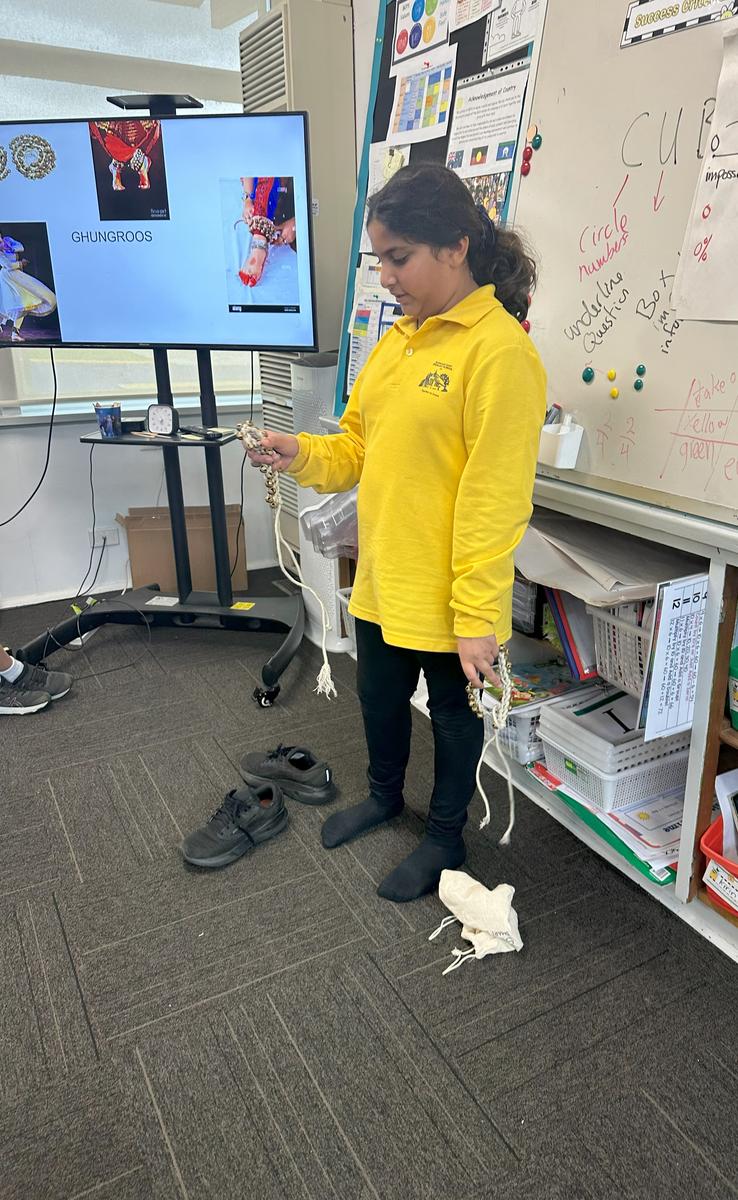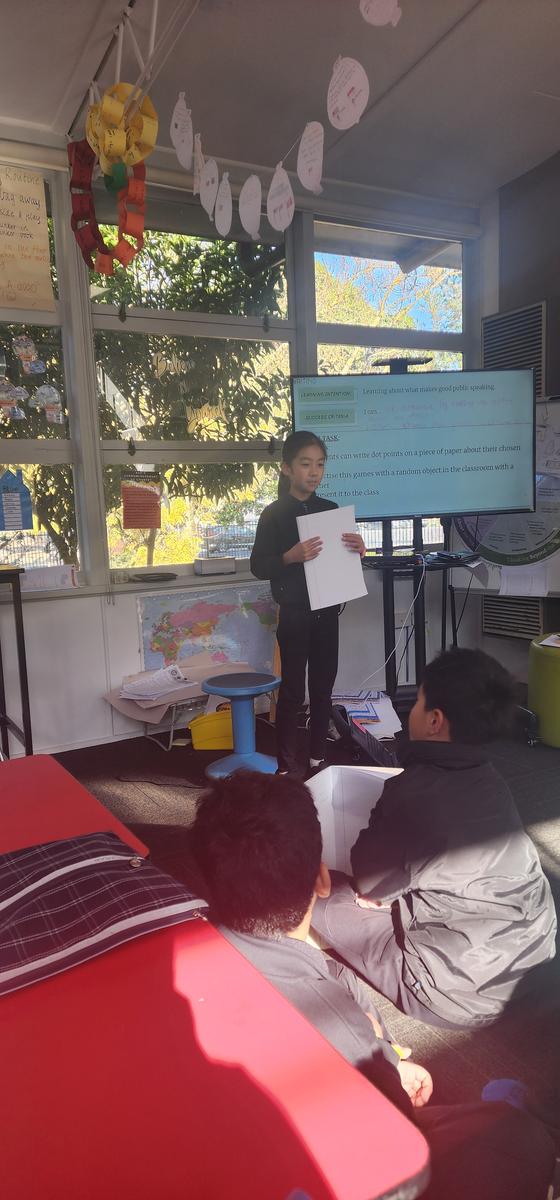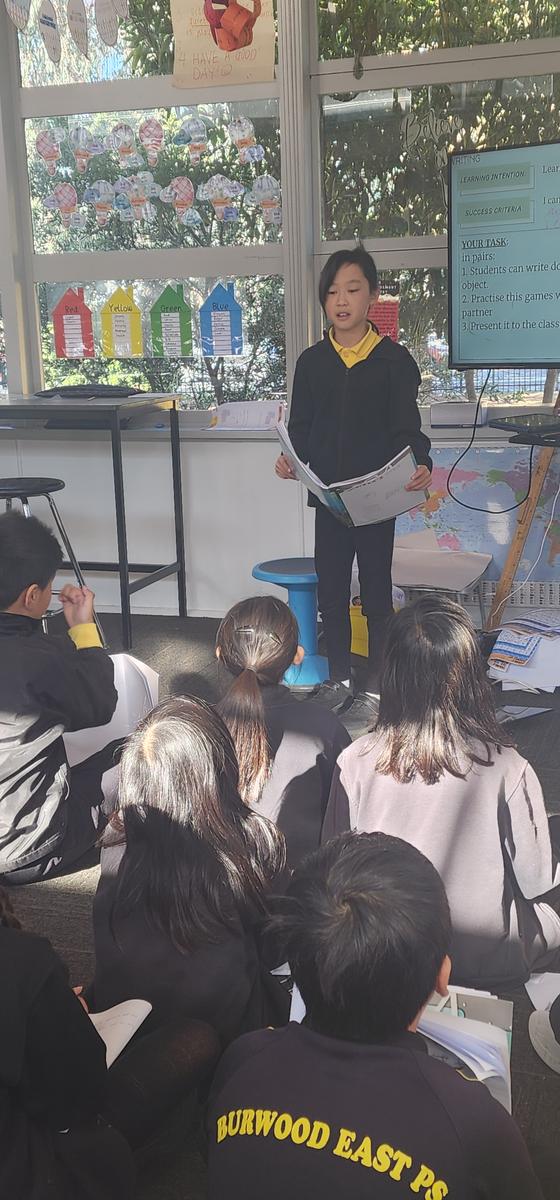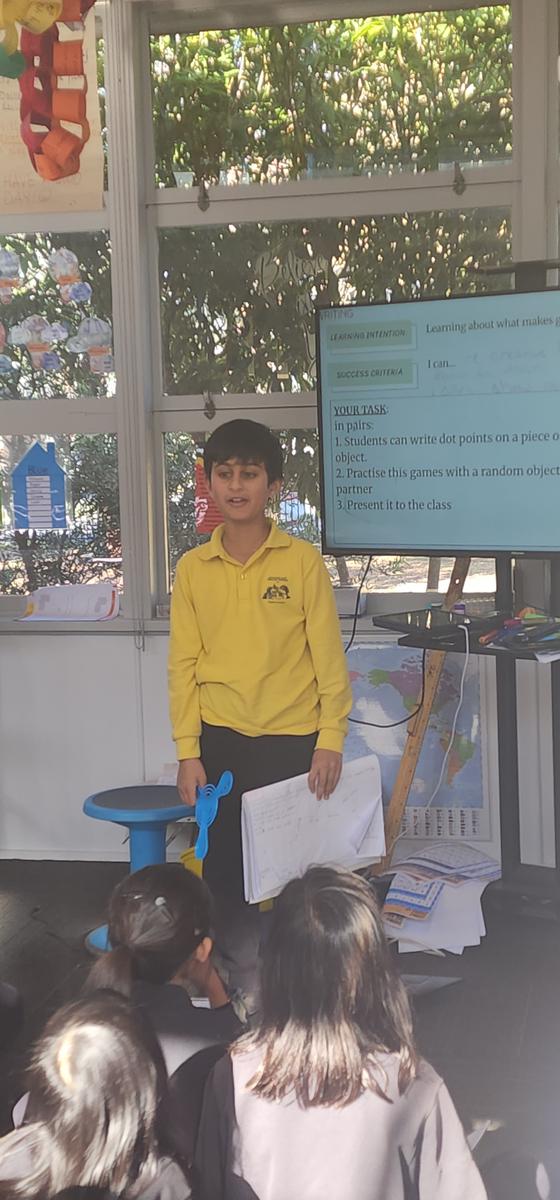Year 4 - Public Speaking

Public Speaking in Year 4
Each week at assembly we see multiple children standing up to present to a COLA full of peers, staff and parents. We have countless musical groups, bi-annual whole school productions, and our end of year celebration concert where our students get up to sing and dance in front of an audience of hundreds.
But have we ever stopped to think about how the individual students may feel about being in front of that crowd?
Well, I’m glad you asked, because yes! The Year 4 students and teachers have been asking ourselves that exact question all term.
Did you know that approximately 75% of adults have a fear of Public Speaking? (Reference: https://www.edutopia.org/article/helping-elementary-students-public-speaking/)
We decided to investigate this statistic further and survey the staff at BEPS.
With 27 responses, we found that 74.1% of staff had a fear of public speaking, with approximately 20% of these having a substantial fear.
To dig even deeper, we then surveyed the Year 4 cohort of 82 students. Our students fared better than the staff, with only 62.2% of students reporting a fear of public speaking, with less than 15% describing their fear as substantial.
We would love to go even further now and survey you, the BEPS Community. If you are willing, please click on this link to complete the short, anonymous survey about your own fear level relating to public speaking:
https://docs.google.com/forms/d/1d6ClNExasrZhM_OeSN5tAwzOnbhz1vpbVIQthOlqv3w/edit
So, where to from here?
Our research and survey results show that a fear of public speaking is a major problem, particularly with adults. We believe that equipping our students now with a range of public speaking skills and opportunities to build their confidence is essential for success in their future. We will be spending the rest of the term focusing on this, undertaking a range of presentations, games and debating activities that strengthen their confidence, resilience and presentation skills.
Speaking ‘off the cuff’ or without time to prepare in public is a difficult skill to develop. There are many situations where students are required to speak without having much time to think ahead. An excellent way to help your child learn to think quickly is by playing improvisation games.
Here are a few games you could try at home to boost your child’s confidence (and maybe even your own):
Four Favourites Challenge Game
Choose one topic: favourite movies, restaurants, desserts, friends, books, animals or family memories. Take turns sharing your Four Favourites. Ask each other lots of good “Why?” questions about each other’s Four Favourites. The challenge is to gather together the next night at dinner and see how many favourites everyone can remember about each person. Who was really listening and paying attention?
3, 2, 1 Questions Game
You’ll be amazed at what you learn about each other with the 3, 2, 1 Questions. Take turns answering the 3, 2, 1:Share 3 good things that happened to you today; share 2 things you hope to do tomorrow; share 1 thing you are grateful for.
Switch the numbers around, as they work best for your family.
Just a Minute One person is given a topic and must speak about it for one minute without repeating themselves, using filler words or stopping. This game challenges communication skills and encourages clear, concise speech.
Story A - Z
A player begins the story or a conversation chain with a sentence that starts with 'A', for instance, “Anyone seen my keys?”
The next person would continue with the next sentence, starting with the letter in the alphabet and might say, “Beside the TV remote control.”
The game goes on with each player adding to the chain in alphabetical order. To switch things up, you can also reverse the order, starting with Z.
Name Ten in Ten
A player chooses a category such as ‘Fruit’.
The other players would have to come up with a total of 10 examples that fall under the category within 10 seconds. The player who came up with the category will get to decide whose examples fit the best.



